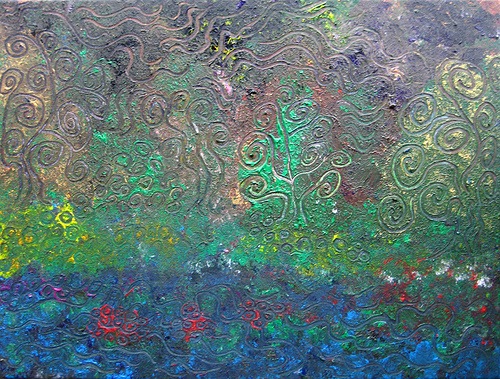Does the Effectiveness of Science Support Philosophical Naturalism?

James Chastek at Just Thomism writes:
On the inference from the success of science to Naturalism being probable
[Scientism] attempt[s] to bootstrap from the success of a natural explanations to the probability of naturalism. The relevant argument is this one: The sciences have had such great success with natural explanations that it is improbable that non-natural explanations are true.
First off, the argument obviously works in one very limited sense: if you see enough natural explanations in a row, you’ll likely be surprised if a supernatural one comes along. Now one sense of “improbable” is indeed “surprising,” but if this is all the Naturalist argument comes to, then there needn’t be any rational basis for Naturalism, since simply being surprised by something doesn’t make the surprise rationally informed (for example, one sort of surprise comes from things we were too ignorant or too oblivious to see coming). In order for the natural success � Naturalism inference to have a rational basis we would need some account of how often we would expect a non-naturalist explanation to occur. Thus, even granting that the scientific method could rationally deal with a hypothesis of the divine existence, how often would you expect it to do so? If that question is too hard, try your luck at a simpler one: assuming a world with only Euclidean geometries, how often would you expect geometers to develop the idea of non-Euclidean geometry? Say you lived any time between Euclid (300 BC) and the rise of non-Euclidean geometries in the 19th century. What p-value could you assign to the rise of non-Euclidean geometry? Should you rationally expect it to develop after 500 years (200 AD)? After a millennium? When exactly? The question demands a sort of knowledge we just can’t have, whether our method is scientific or otherwise. There are historical contingencies, free choices, sheer accidents, and a hundred other things at play that keep us from ever being able to figure out whether such a thing will ever come to pass at all, much less what its probabilities are.
And so, in an irony that the heavens have no doubt long laughed at already, the attempt to argue that the multiplication of successful natural explanations makes Naturalism more probable is itself a straightforward piece of junk science. In fact, it might not even rise to this level: junk science conclusions can at least be based on a junk p-value — but the Naturalism inference can’t even base itself on this…
[T]he fact is that we have no precise idea whatsoever of when we should expect a science capable of forming supernatural hypotheses to form its first plausible one, and so no way to make the repeated successes of natural science contribute to the probability of naturalism.
The scientistic view that the success of natural explanations demonstrates the truth of philosophical naturalism (the view that nature is all that exists) is a non sequitur.
Consider this analogy. Among scientific disciplines, none is more "successful" than engineering. Engineering really works — electronics, computers, cars, lights, airplanes, etc. It is, in our everyday life, the most successful kind of science. It does not follow, then, that all science must be understood in terms of engineering. There is scientific truth that does not restrict itself to engineering principles, just as there is metaphysical truth that does not restrict itself to scientific principles.
The success of one mode of inquiry does not mean that all truth can only be approached through that mode of inquiry.
In the matter of science, the view that science cannot give us the whole truth is particularly obvious, given that the assertion that science can give us the whole truth is itself not a scientific assertion.
As Chastek noted wryly, the scientistic mode of thinking is junk.
Image credit: tomt6788/Flickr.
